In this comprehensive recap, we reflect on Animal Welfare League’s work throughout 2024, share our vision for 2025 and beyond. This effort is part of our dedication to open communication, enabling our partners, donors, and other supporters to learn about our achievements, challenges, and strategic goals, as well as to offer feedback on our future direction.
Snapshot of AWL’s 2024
- We secured three 100% cage-free commitments in Ghana, which have already been fulfilled through the National Cage-Free Directory. The commitments are from Accra City Hotel, Sannak Hotel, and Sky Plus Hotel & Resort.
- We carried out two egg producer workshops in the Bono and Volta regions, which brought together 76 egg producers. Of these, 61 joined the National Cage-Free Farmers Network, making a total of 154 egg producers in the network and 70 egg producers (+1 egg supplier) in the National Cage-Free Directory in Ghana. As a result, an estimated over 1.2 million hens are committed to cage-free housing that upholds our minimum welfare standards.
- We commissioned two research studies, “Economic Analysis of Poultry Production Systems: Cage-free vs Battery Cages” and “Assessing the Attitude of Ghanaians towards Farmed Chicken Welfare, Higher Welfare Egg-Labeling, and Willingness to Pay,” which evaluate key questions on the economics and consumer awareness of animal welfare in chicken farming in Ghana. We also have a manuscript in consideration at a journal on “From Awareness to Action: Evaluating Animal Welfare Attitudes and Practices in Ghanaian School Children.”
- We launched an essay competition that received 20+ submissions. We have also developed a campaign video to launch our consumer awareness campaign in 2025.
- We signed a Memorandum of Understanding with the Ghana Standards Authority for a project on developing the country’s first national poultry standards.
- Oyiwaladorn (which means “Thank You” in the Ghanaian language, “Ga”) to everyone who supported and engaged us in our work in the previous year. Non-casual readers who want to indulge in our work can read more for the detailed post.
About Animal Welfare League (AWL)
We are making strategic changes to our mission and scope of work. Animal Welfare League is now wholly dedicated to farm animal welfare in Africa. We have streamlined our focus to improving chicken and fish welfare in Africa (we are deeply sorry to all the other species suffering that we are too unpowered to help at the moment).
Due to this change, our staff is now divided into Outreach and Consulting teams for projects on chicken and fish welfare, a central administrative team, and a future affiliated research program. We will actively collaborate with stakeholders in South Africa, Egypt, Morocco, and Ghana to promote farm animal welfare in Africa.
Our Advisory Board
We have added Jayasimha Nuggehalli, Co-founder & COO of Global Food Partners, to our advisory board. Jayasimha’s addition comes at a crucial time as we grow our program to three other African countries. Read more here.
Our Special Highlight and Shout Out
- We highly recommend The Mission Motor program for early groups. Through their program, we have conducted a study evaluating the major motivating factor for egg producers to join the National Cage-free Farmers Networks. We have also started collecting more detailed and structured data on our various corporate outreach strategies in securing commitments, allowing us to confidently double down on high-success strategies. We are supporting the design of the pilot media campaign, especially the evaluation of the ad and Theory of Change as well as our general theory of change. We believe we are also communicating our work, context, and dynamics underlying it better than before.
Our work in 2024
Cage-free Project
We continue to employ our four-pronged strategy, which consists of corporate outreach, egg producers’ engagement, raising consumer awareness, and advocating for policy to alleviate the suffering of hens in Ghana and across Africa.
Corporate Engagement
We have continued to make progress on corporate outreach both locally (in Ghana) and as the OWA Africa Global Outreach Strategy Leader, holding global companies operating in Africa accountable and equitable to farm animal welfare policies.
In 2024, we held meetings with 18 local food and hospitality companies, including seven of the top ten rated restaurants in Accra by Google and Trip Advisor. We also participated in three events organized by the Ghana Hotels Association. We gave presentations to over 100 executive directors of hotels in Ghana, pushing for an industry change towards higher welfare products and presented awards at the Ghana Hotels Association biennial awards event to the Green Hotel of the Year Category. Our outreach strategy remained the same but was improved following collaborative training from User Friendly.
We have secured three cage-free commitments from Accra City Hotel, Sannak Hotel, and Sky Plus Hotel & Resorts. These commitments are 100% fulfilled as they are supplied by egg producers on the National Cage-Free Farmers Network, except for the supplier of Accra City Hotel.
On regional fronts, as the OWA Africa Global Outreach Strategy Leader, we conducted comprehensive company profiling of 50 global companies operating in Africa, tracking their cage-free status in Africa and dividing them into four color codes. We also revised our strategy and identified targets for the year, to which we developed an annual action plan with monthly quotas. As a result, we had active outreach and engagements with companies sending close to 600 emails. Our primary target was seeking regional reporting of Kempinski Hotel cage-free progress, which was achieved even though it was not as we hoped, together with other groups participating in the Mercy for Animals Egg-quity Index. We also mobilized African groups and participated in the following Open Wing Alliance campaigns: Heartless, Foul Food and Kewpie.
In terms of the number of hens impacted by our corporate outreach work this year, we estimate about 521 hens are directly affected by the Accra City Hotel’s commitment and indirectly about 6,479 hens, the reported farm total production of their supplier annually. Note: The Accra City Hotel egg supplier is not included in our network, but they agreed to our unannounced visits to confirm they are only using cage-free housing. To avoid double counting of impact, we will not count the number of hens affected by the other two commitments fulfilled by egg producers in our directory. We do not have estimates for the humber of hens impacted by our regional work yet.
AWL Corporate Outreach Staff with a staff from Accra City Hotel
Egg Producers Engagement
We organised two egg producers’ workshops in 2024 at Bono and Volta regions which allowed us to welcome 61 new producers to the National Cage-Free Farmers Network. As a result, per reported productions of the 61 producers, about 504,575 hens are also now committed to cage-free housing in Ghana. This brings the total number of hens now committed to cage-free housing in Ghana to 873,685 through our Cage-free Farmers Network and Directory. These workshops conclude our regional outreach to egg producers in the key poultry production zones in Ghana.
In their commitments, the egg producers agree to AWL operating policies including:
- Abstaining from the use of battery cages or similar practices in production
- Accepting both announced and unannounced farm visits
- Providing periodic production updates to AWL
- Allowing AWL to share their data with companies
We also signed a memorandum of understanding with Agro Innova Company Limited. Registered in Ghana, Agro Innova leverages climate-smart, farmer-centered digital innovations to improve food security and the livelihoods of smallholder farmers across Africa. Agro Innova supports both small-scale and commercial poultry farmers through an online platform that connects farmers to markets and provides verified and safe products, including eggs, to businesses. In 2024, Agro Innova was a primary egg supplier to some of the biggest supermarket chains and hotels in Ghana and supplied an average of 15 million eggs per month.
We interviewed some egg producers on the National Cage-Free Farmers Network to better understand what part of the message played a major part in their decision to commit to cage-free housing. The data shows that 92.3% committed to staying cage-free due to animal welfare concerns and 27.3% for economic reasons). The farmers were able to mention the five freedoms of animal welfare that their hens were enjoying, such as the expression of normal behavior (100%), freedom from discomfort (30.8%), and hunger and thirst (15.4%). Other layered questions corroborated the findings that animal welfare was the major factor that made the farmers stay cage-free. Also, 38.5% of the surveyed egg producers reported that they had changed their minds about expanding to include battery cages in the past year as a result of AWL’s intervention. See more in the Appendix.
In terms of the number of hens impacted by our producer engagement work in 2024, we estimate a total of 1,287,183 hens. This is from the additional 504,575 hens in the cage-free farmers’ network and 782,608 hens in Agro Innova’s supply chain.
A group photo of AWL staff and participants of our volta egg producer workshop
Consumers
In 2024, our egg producers workshops were broadcasted on multiple national television channels, including Joy News, Citi TV/FM, TV3, and Onua TV. Together with our volunteers, we also took over 500 social media actions, generating over 54,000 impressions across Facebook, Instagram, LinkedIn and X.
AWL Director speaking to the media about welfare issues in the poultry sector
Through a partnership with User-Friendly, we developed an advertisement video to pilot a media campaign in Ghana to raise public awareness. In this pilot campaign being executed in 2025, we are running an evaluated video advertisement through two national television media houses and three selected social media platforms for three months. An evaluation of the effects of the advertisement was measured, and its performance and reactions are being tracked. We will publish a blog post on the Animal Charity Evaluators website with our findings when the pilot is over.
Policy
We signed a memorandum of understanding with the Ghana Standards Authority to support them in developing the country’s first national poultry standards. The standards will seek to establish requirements and guidelines for poultry production, most especially for chicken and egg production. In the agreement, we have agreed to two phases:
Phase One: Standards Development
1. Development of national standards for poultry production.
2. Development of an inspection manual.
3. Development of illustrative materials for the standards.
4. Amendment of egg labeling requirements.
Phase Two: Certification
1. Establishment of a certification scheme for poultry production.
AWL staff with staff of Ghana Standards Authority
Research
Awareness, Attitude and Knowledge of Animal Welfare Among School Children in Ghana:
We have conducted preliminary research involving over 1,600 pupils from sixteen schools across eight regions in Ghana. The aim was to assess the awareness, attitudes, and knowledge of school children regarding animal welfare. The manuscript for this study is being reviewed in a journal.
Economic Analysis of Poultry Production Systems in Ghana: Cage-Free vs Battery Cages: Summary
Poultry farmers’ perception of the cage and cage-free systems of production: All the sampled farmers had positive perceptions about animal welfare and acknowledged that proper handling of birds promotes their welfare and increases productivity and quality of eggs and meat. Interestingly, all the respondents (including the cage users) agreed that the deep litter system (cage-free) offered better housing in terms of ease of movement, thermal comfort, and comfort during the resting period
The cost and revenue of the cage and cage-free systems of production: The economic or financial indicators such as the net present value (NPV), benefit-cost ratio (BCR), internal rate of returns (IRR), and payback periods were estimated to be GH₵132,873.68, 1.26, 91%, and 1.18 months, respectively, for the battery cage users. Similarly, the deep litter users recorded NPV, BCR, IRR, and payback periods of GH₵118,526.42, 1.23, 96%, and 1.14 months, respectively.
An estimate of the return on investment (ROI) and profitability of each of the farming systems: The results indicate that for every GH₵1.00 invested in layer poultry production, the cage users gained GH₵1.26 while the cage-free users gained GH₵1.23
The number of eggs produced per hen, body weight, growth rate and feed conversion ratio of each of the systems: The mortality rate of the birds, however, was about 4% higher in the deep litter houses compared to the battery cages. Additionally, the feed conversion ratio (FCR) of the birds raised under the deep litter system was 0.47 more than those in battery cages, indicating that the caged birds were more efficient in converting feed to eggs
The Herfindahl-Hirschman Indices (HHI) of 0.0077 and 0.0113 for cage and cage-free systems, respectively, suggested that the layer hen or egg markets in the study area were highly competitive during the period.
The researchers concluded that layer production under cage and cage-free systems was financially viable and resilient to market dynamics. They also concluded that the poultry farmers in the study area were aware of the animal welfare promotion benefits associated with cage-free systems; however, some were willing to compromise the birds' welfare to maximize the perceived “extra” financial benefits associated with the cage systems.
See more in the Appendix.
Assessing the Attitude of Ghanaians Towards Farmed Chicken Welfare, Higher Welfare Egg-Labeling, and Willingness to Pay: Summary
Strong Preference for Egg-Labeling System
A significant 68.2% of Ghanaian consumers indicated they will use an egg-labeling system that shows the welfare conditions under which eggs are produced. Additionally, 80.3% believe that such a system would be helpful to consumers. This suggests a widespread demand for transparency and information when making purchasing decisions. Implication: Policymakers have an opportunity to introduce a standardized egg-labeling system that could drive higher welfare standards across the industry.
Perception of Companies and Producers with Higher Welfare Standards
The study reveals mixed perceptions about producers and companies, with 25% of participants believing that these entities prioritize profits over animal welfare. Conversely, 43.0% strongly agreed that companies advocating for better animal treatment are taking the right approach. This highlights an opportunity for companies to build trust by adopting higher welfare standards and actively communicating these efforts. Implication: Companies that effectively integrate and market higher welfare practices can differentiate themselves, strengthen consumer trust, and potentially increase market share in a competitive industry.
Willingness to Pay for Higher Welfare Products
Consumer willingness to pay a premium for higher welfare products is divided, with 48.0% willing to pay more for cage-free or free-range eggs and 52.0% unwilling. Despite this price sensitivity, economic analysis reveals minimal differences (2.44%) in profitability between cage and cage-free systems, with the latter showing slightly shorter payback periods. Implication: Producers can leverage the already substantial portion of the population (5 in 10 Ghanaians) that is willing to pay more for cage-free eggs. They can also strategically position higher welfare products through targeted marketing that emphasizes minimal price differences and the added benefits of these products to the public. Coupled with consumer education on the advantages of higher welfare standards, such strategies could increase the willingness to pay and drive demand for welfare-friendly options.
Public Awareness and Education
While 50.6% of participants consider animal welfare in their purchasing decisions, a significant portion (28.1%) remains neutral about the inhumanity of caged systems. This neutrality suggests a lack of awareness or understanding of the ethical issues associated with certain production practices. Implication: There is a critical need for robust public education campaigns that clarify the ethical, environmental, and health issues associated with factory farming. Food businesses can play a role in addressing these gaps, which could influence consumer behavior, increase support for welfare-friendly products, and encourage more humane production practices within the industry.
A public document is being processed for publication.
One-Off Projects
- Leading to 2024, we saw the opportunity to train our staff at Global Food Partner (GFP)’s Cage-free Innovation and Welfare Hub. In conversations with GFP team, we recognised how useful it could be to invite other African animal advocates. As a result, we coordinated a one-off project, “International Training at Cage-free Innovation and Welfare Hub.” We lead fundraising and disburse funds to five other African animal welfare organizations for participation in the training.
- Through this project, we brought together 23 advocates from the following organizations: Animal Welfare League, Animal Welfare Competence Center for Africa, Animal Advocates International, Education for African Animal Welfare, Humane Africa Trust, Sibanye Animal Welfare and Conservancy Trust for a week full of activities in Yogyakarta, Indonesia.
- The training included sessions on the principles of a cage-free system, Corporate action in supporting cage-free development and community empowerment, running a model farm, farm visitations and presentations on running small-scale and large-scale cage-free egg farms as well as several other presentations from academicians, Animal Friends Jogja, etc.
- Participants participated in a project-based learning exercise and presented outcomes they intend to implement back in their home countries. Participants were also provided with certificates. We would like to first appreciate Ellisa and Jayasimha and their incredible team especially Chloe, Alvian, Kristina and the others for being open and sharing their knowledge, EA Animal Welfare Funds for providing the funding, staff at Animal Welfare League and the other groups for participating.
Advocates from African groups participating in the International Training in Indonesia
Programs, Conferences & Events
- In 2024, we participated in a total of four conferences and three other events, including
- AVA US 2024
- OWA Africa Summit 2024
- AFAD 2024
- International Cage-Free Training in Indonesia
- EAG Virtual 2024
AWL staff and former volunteer at AFAD 2024 Hanoi
- Jacob Ayang, Corporate Campaigns Lead, completed the inaugural Advocate Training program organised by Animal Advocacy Africa in 2024. He brings back a wealth of knowledge on decision-making tools such as the Weighted Factor Model and Murphyjitsu, among others, that we currently employ in our activities.
- Through a partnership with Scarlet Spark, five staff have completed a leadership training program focused on Organizational Health: Role clarity, Foundational Skills, Value Alignment & Feedback channels. Productivity: Decision-making system, Prioritization, Collaborative working system, & Assessments. Read more about this training in our training series blog.
- In 2024, we participated in the Monitoring, Evaluation, and Learning program by Mission Motor. Through this program, we have undertaken tailored training on developing a monitoring evaluation and learning framework for our flagship programs. Starting with designing and finetuning our theories of change, we have developed a framework for corporate cage-free outreach activities, which we are implementing to measure our activities beginning in 2025. Similar monitoring and evaluation frameworks are being developed for the other pillars of our cage-free activities, producer engagements, and consumer awareness education.
Things We Would Like to See Happening in Africa
At the end of 2023, we suggested things we would like to see happen in Africa, and we were happy to see much improvement in some of them in 2024. For instance, on training and support programs, we were excited about Thrive Africa Accelerator and Animal Advocacy Africa Training Program, while on movement building, we are excited about AVA Nairobi 2025.
We are interested in seeing more research on economics and financial aspects, government and policy, consumption and demand, and long-term public awareness interventions. AWL will actively pursue more research in Africa and is open to collaboration. Research questions we are excited about are:
- How much funding is coming from international donors and intergovernmental organisations to further intensify industrial animal agriculture in Africa?
- What are the biggest welfare issues for farmed fish in semi-intensive farming systems in Africa?
- A pan-Africa study assessing the attitudes of Africans towards chicken and fish.
- Modeling the impact of introducing import tariffs on low-welfare animal products in select African countries on animal suffering and national economies.
- We would like to see training and consultancy programs dedicated explicitly to African governments and ministries. We think this would be particularly useful as African governments are actively looking to increase their local production for several reasons, including food security, job creation, and reduced overdependence on importation. Hence, offering consultancy services to these governments on how to manage, improve, and sustain local food production while reducing animal suffering has the potential to impact a few million to several million animals. We believe such consultancy services will be in direct competition with similar services from the animal agriculture industry.
Our Goals for 2025
Cage-free Project
- On Corporate Outreach, we expect to continue working with restaurants and hotels to secure at least three cage-free commitments. We will continue as strategic leaders for Open Wing Alliance Africa, working closely with OWA Africa organisations to push harder for greater accountability of commitments in Africa.
- On Producer Engagement, we will expand our cage-free directory to South Africa, Egypt and Morocco. This is part of our plans to provide bespoke support services to global and multinational companies operating in Africa to fulfill their cage-free commitments. To that fact, recommend us or connect us to any global or multinational companies that are looking to make progress on their commitments in Africa.
- On Research, we intend to pilot pan-African research via a novel research commissioning program. Through this program, we will collaborate with academic researchers within the region to conduct high-impact research on or relating to farmed animals.
Organisation
Budget and financial information
In 2024, our total expenditure amounted to USD 215,000, which is 4 times that of the previous year. Contributing to this increase is the following: we raised more than 100% of our budget, paid full-time equivalent salaries for the first time, pursued a pilot media campaign, commissioned two academic studies, and coordinated a training program at Global Food Partners in Indonesia for 23 African animal advocates.
Over 97% of our funding came from philanthropic funders, and the remaining is through individual contributions. We saw an over 100% increase in individual contributions compared to 2023.
Notice: We are examining the risks of continuous public disclosure of funding and grant reporting as we expand operations into new countries. While it is uncertain at the moment, this may impact future public grant reporting; further updates will be provided as our review advances.
Our staff and operations
In 2024, we had five staff members with a staff capacity of 4.75 FTE. We also hired independent contractors in South Africa, Morocco, and Egypt, who will stay on part-time in 2025.
Our Mistakes and Learnings
- We previously did not contribute to staff pension as we hired people on an independent contracting and volunteering basis. However, in contributing to the development of the people working at the organization, we transitioned the team to contracts that allow us to make statutory contributions for their pensions. We hope to expand on this and provide other benefits.
- We have hired an independent auditor for financial auditing and reporting.
- Following feedback and recommendations from previous egg producer workshops, we added breakouts and presentations from breakout sessions into the program outline while eliminating some presentations.
How you can help
- We invite funders, donors, organisations, and researchers to support, collaborate with, and enable our work to prevent the suffering of millions of farmed animals across Africa. Currently, we have a funding gap of $50,000 of our minimum budget for 2025. We have raised 80% of our budget for 2025. You can support us by making a tax-deductible donation in the US to our fiscal sponsor, A Well-Fed World, or through the Animal Advocacy Africa Regranting Program.
- We are a growing organisation operating in Africa, with unique challenges and opportunities. We always appreciate an opportunity to improve and achieve a bigger impact; hence, if you see flaws in our thinking or planning, please reach out. We strive to do better.
- If you haven’t already, you can sign up for our newsletter or follow us on social media (LinkedIn and Instagram) to stay up to date about our progress.
- If you haven't already, you can sign up for our newsletter or follow us on social media (LinkedIn and Instagram) to stay up-to-date about our progress.
Oyiwaladorn (“Thank You” in Ghanaian language “Ga”)
We extend a big thank you to everyone who enabled us to make progress in our work and achieve the impacts we have made. In particular, this includes our donors, advisors, and our friends and family who support us in working for this cause. Some listed below
- The Mission Motor
- Animal Advocacy Africa
- User-Friendly
- Faunalytics
- School of Veterinary Medicine - KNUST
- Ghana National Association of Poultry Farmers
- Open Wing Alliance
- Mercy for Animals
- Ghana Hotels Association
- Global Food Partners
- Ghana Standards Authority
- Veterinary Services Directorate - Ministry of Food and Agriculture
Appendix
- AWL Cage-free Farmers Survey
- Ghana Prioritization Report
- Policy Brief I and II. These briefs are being added to our website.


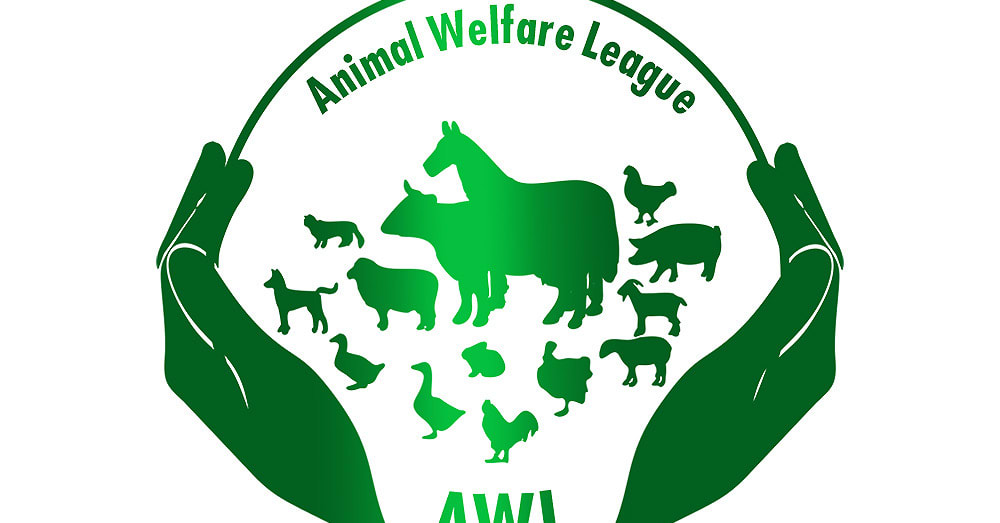
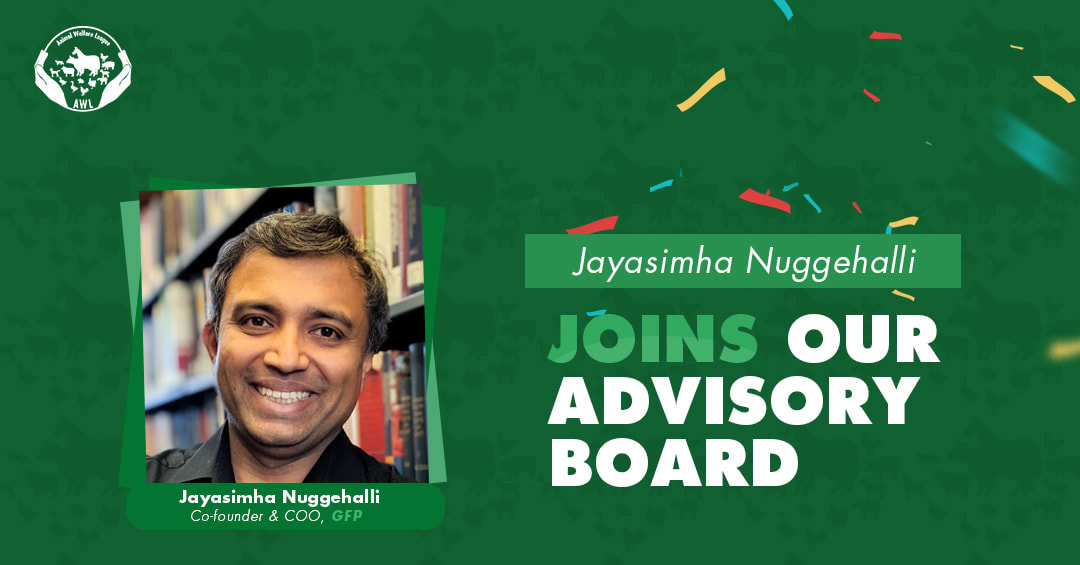
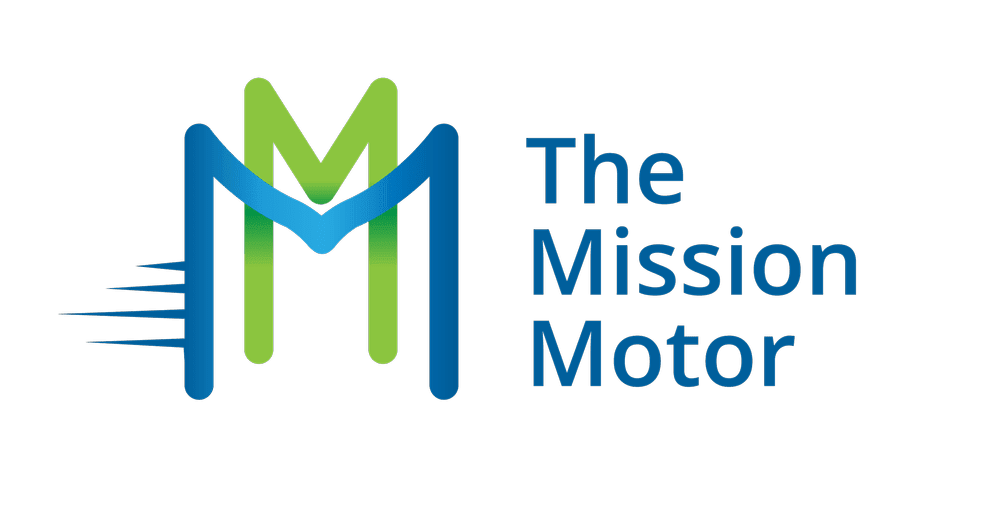
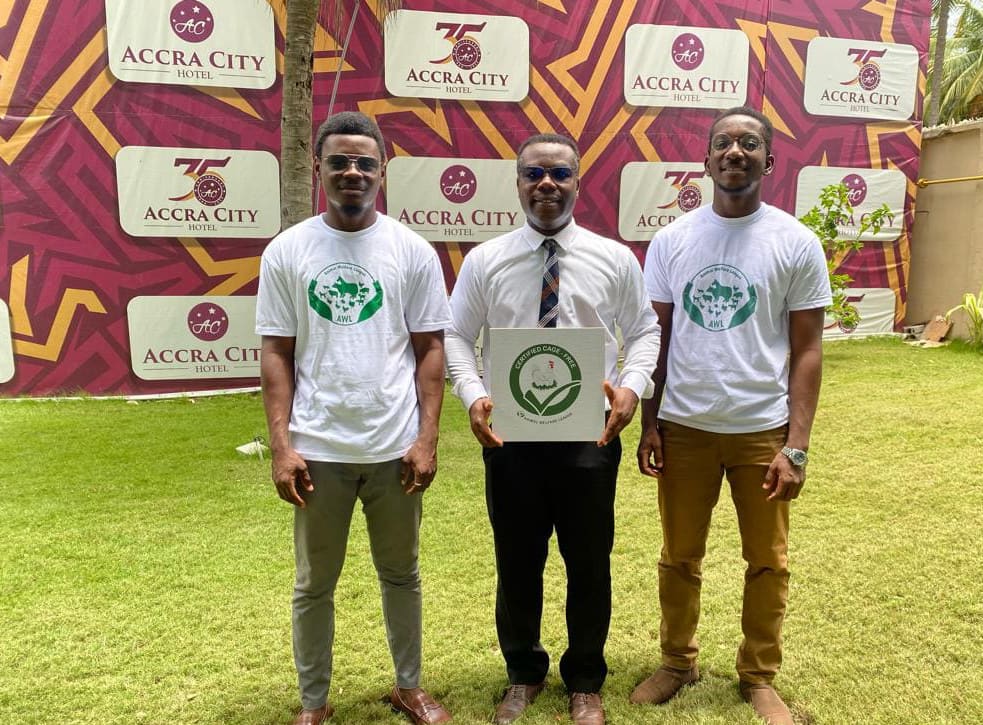
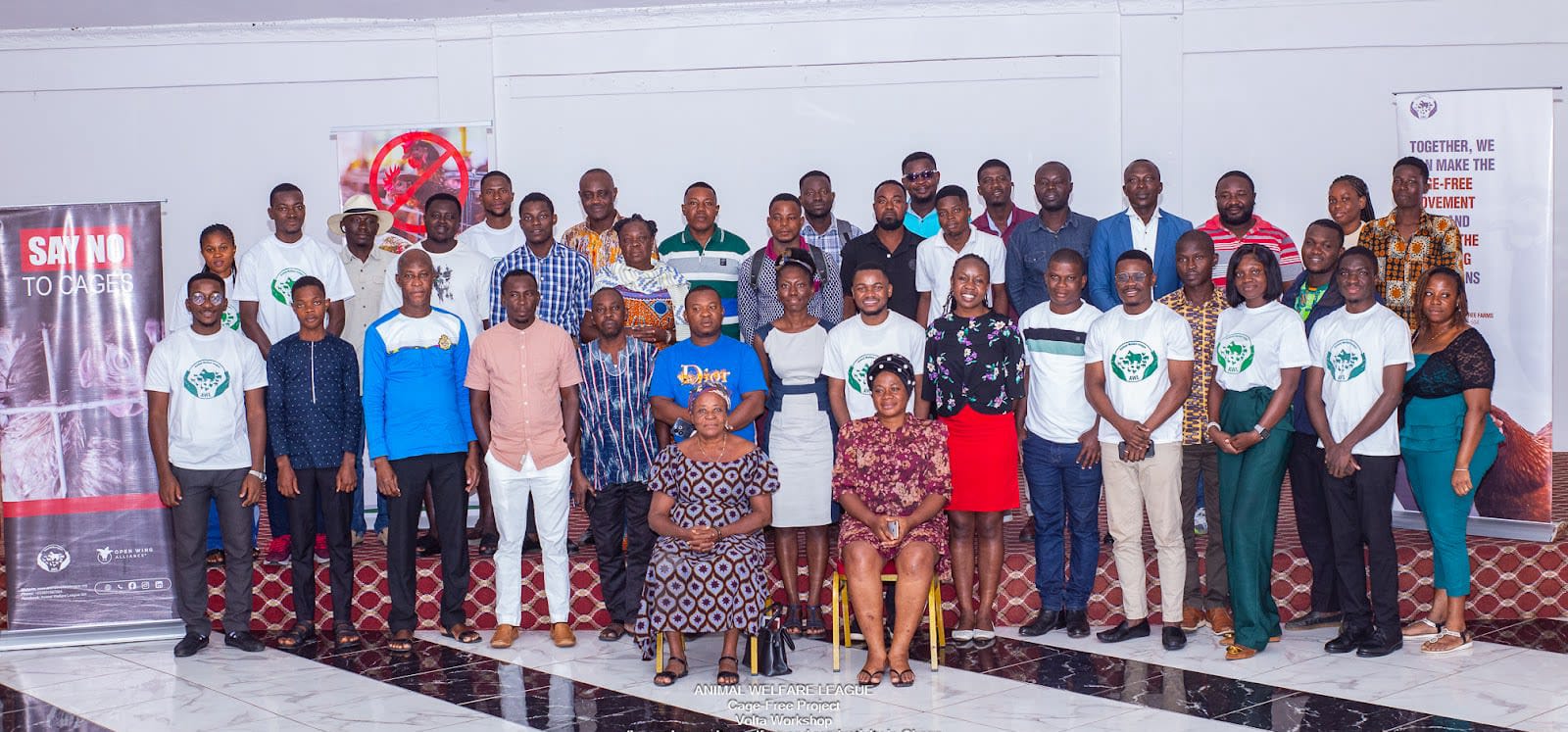
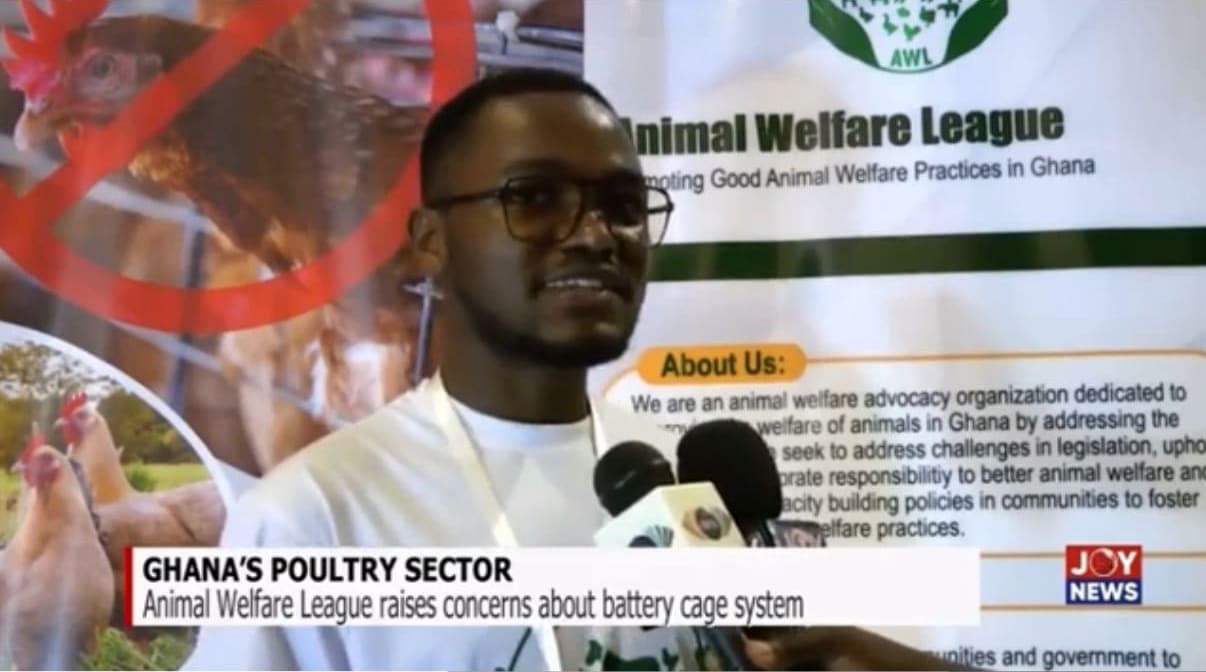
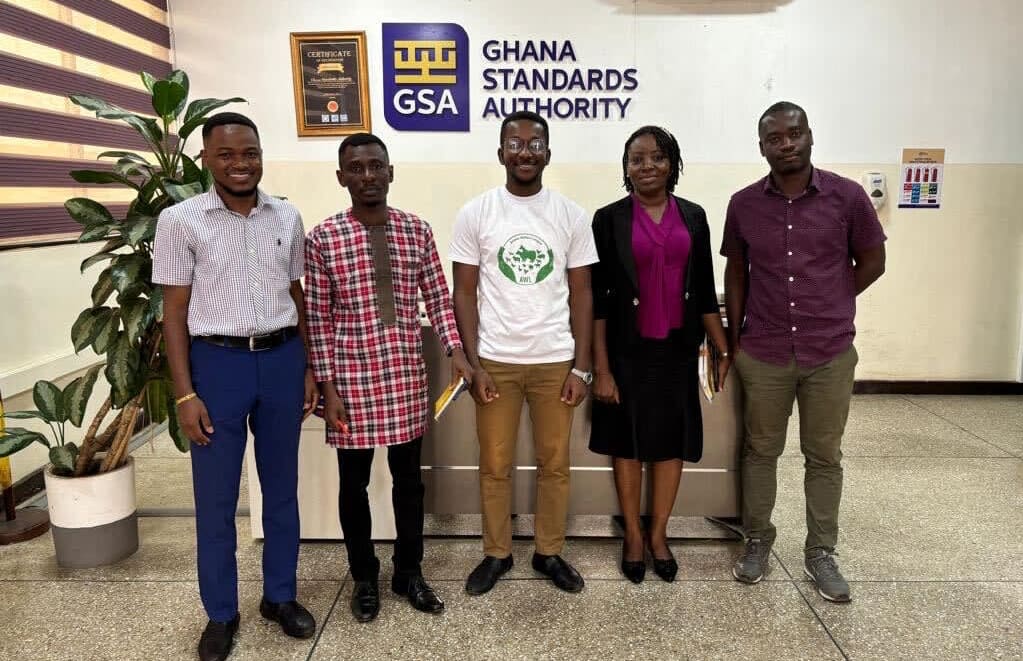
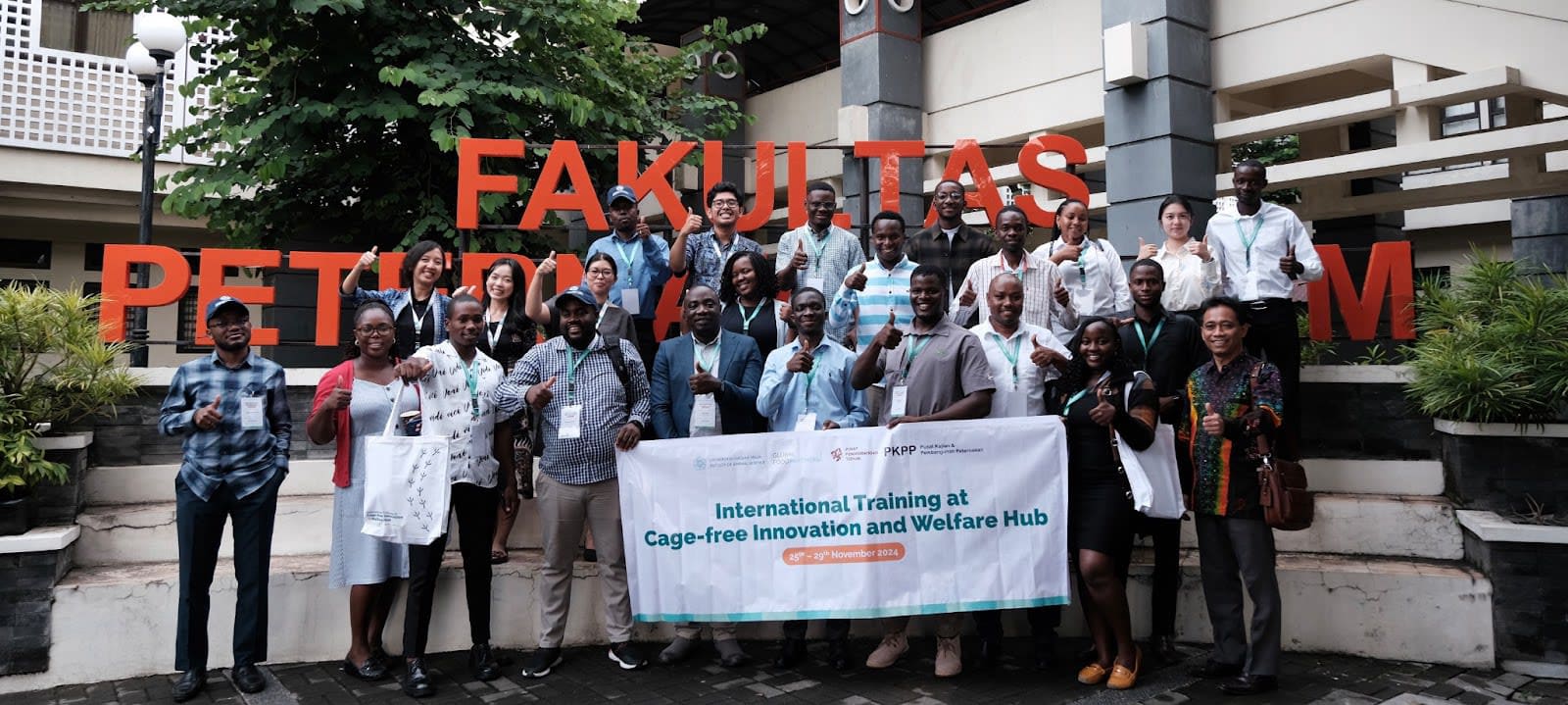
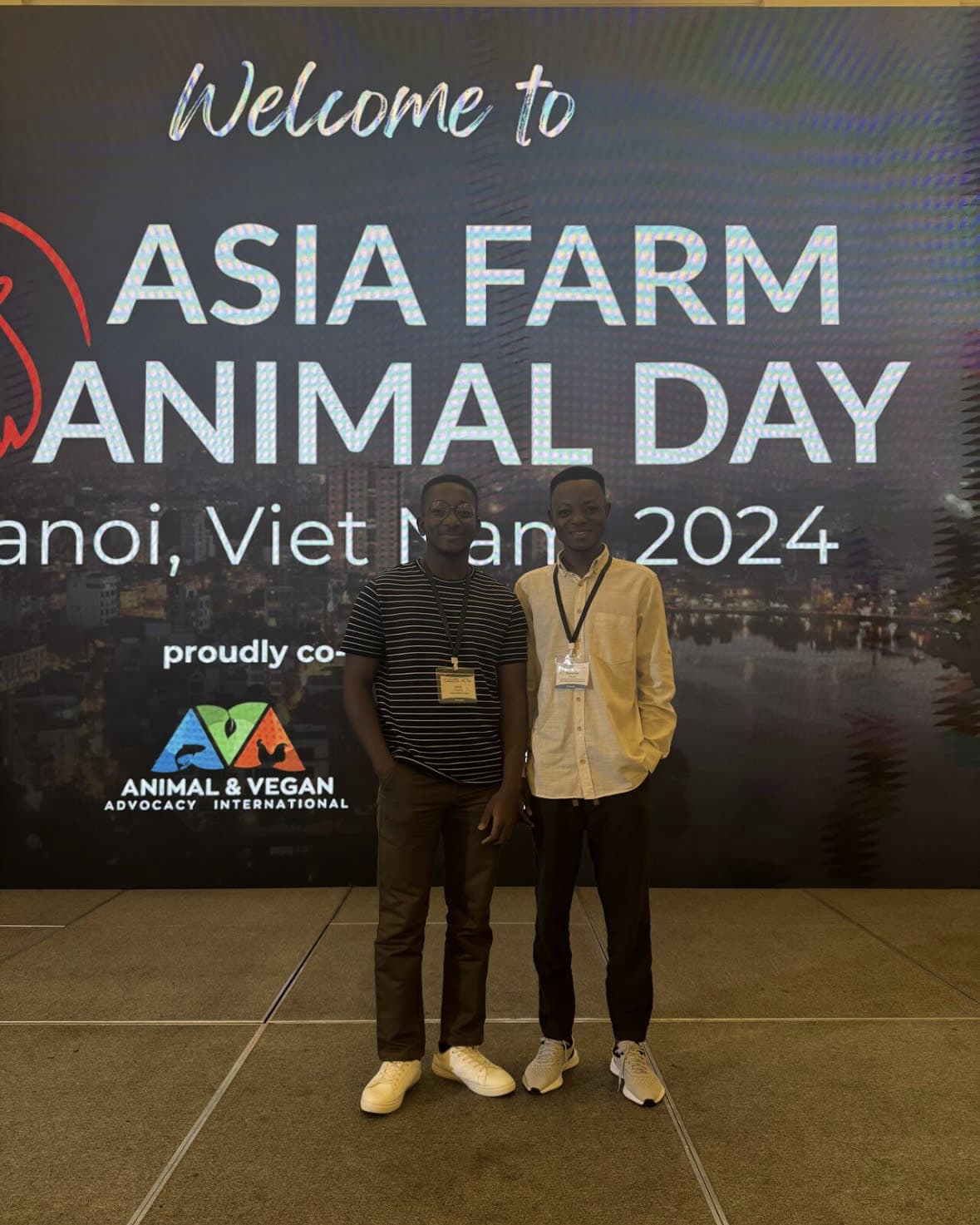
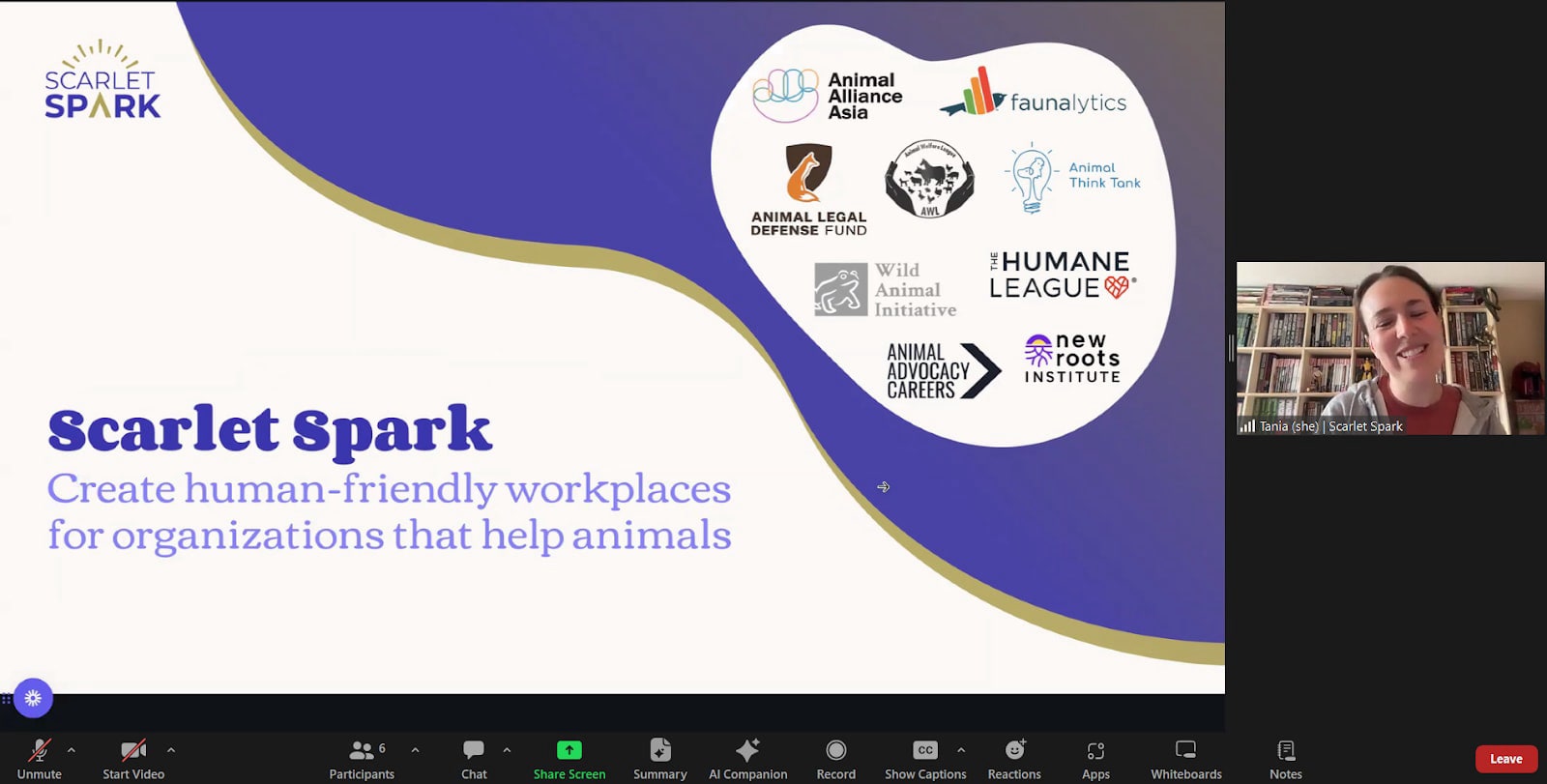
Great job! Our best wishes for this year to be just as efficient, and our admiration. One of the biggest challenges for us has been communicating all the work we do. Sometimes we get so immersed in our tasks that we forget to share updates with our peers. Thanks for sharing—we'll check out The Mission Motor!
Thanks! Marysabel
Thank you for the kind words. Please share your updates with us.